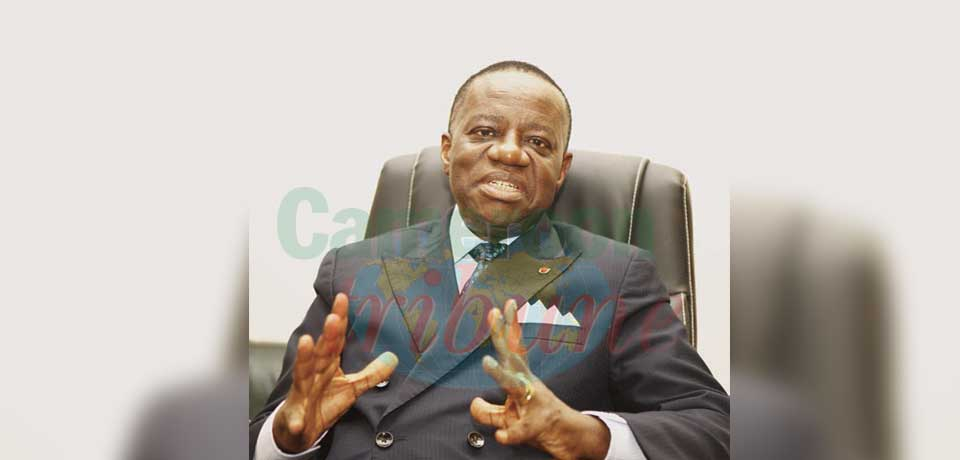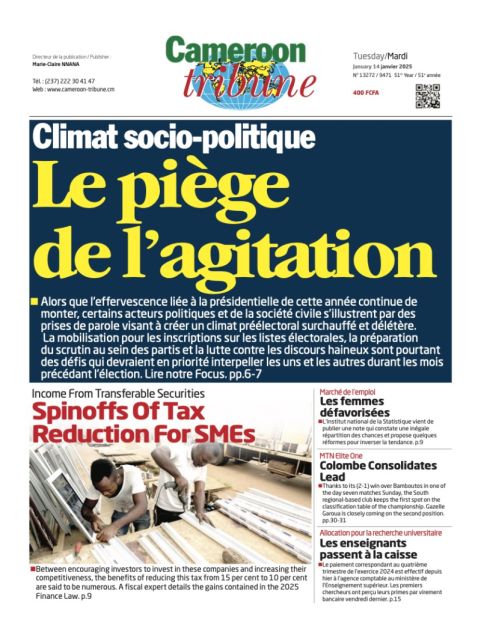World Polio Day 24 October
- Par (é) Jean-Paul KOMON, Le président du CNAMSMD,
- 25 oct. 2016 08:44
- 0 Likes
The world has made remarkable progress against polio in the last three decades, with cases falling by more than 99% since 1988, when the global effort to eradicate polio was launched.
The virus is now only found in some of the most difficult-to-reach regions of Pakistan, Afghanistan and Nigeria. On World Polio Day, it is important to acknowledge the challenges that remain, while emphasizing the tremendous progress made in all polio-free countries and the real opportunity we have to eradicate polio in the coming months and ensure that every child is able to live a polio-free life.
UNICEF and Rotary International will be celebrating the day by launching complementary virtual reality (VR) films at an event hosted by the United States Centers for Disease Control and Prevention (CDC) in Atlanta, Georgia. UNICEF’s film, with an introduction by Goodwill Ambassador Ewan McGregor, features the story of 9-year-old Job, the last child in Kenya to have been infected by the polio virus. The viewer joins Sabina, a frontline vaccinator, as she works tirelessly to reach every child with polio vaccine. Rotary’s film focuses on India, which stopped polio in 2011. UNICEF Polio Chief Reza Hossaini will also be joining a press conference at the CDC, earlier on 24 October.
UNICEF, Rotary and the CDC are all members of the Global Polio Eradication Initiative (GPEI), along with the World Health Organization and the Bill & Melinda Gates Foundation.
UNICEF’s communications around World Polio Day 2017 should focus on three key messages:
The world has an unprecedented opportunity to eradicate polio once and for all: there are just 27 confirmed cases of wild polio reported this year, from three countries – fewer cases than in any previous year
The recent outbreak in Nigeria highlights the risk of failing to eradicate polio: polio anywhere is a threat to children everywhere.
The benefits of polio eradication go beyond protecting children from paralysis: polio’s growing cadre of female frontline workers are helping to build stronger health systems, improving health outcomes for millions of children who may otherwise not receive life saving services.
Facts about polio
- The world has an unprecedented opportunity to eradicate polio once and for all: there are just 27 confirmed cases of wild polio reported this year, from three countries. 30 years ago, when the GPEI was launched, polio paralyzed 350,000 children per year across 125 countries, or 41 children every hour.
- Since 1988, 2.5 billion children have been vaccinated and the number of polio cases has fallen by more than 99% percent: to just 27 cases in 2016.
Factsheet World Polio Day 2016
- Over the last three decades, 20 million frontline workers have delivered polio vaccine in the largest coordinated public health effort in history.
- UNICEF procures and delivers polio vaccines for the Global Polio Eradication Initiative. In 2015, UNICEF procured 1.3 billion doses of polio vaccine. This year alone, an estimated 265,353,511 children have been immunized in polio eradication campaigns.
- Due to the global polio eradication effort, more than 15 million children are walking today who would have been paralyzed by polio, and some 700,000 infant deaths have been prevented.
The recent outbreak in Nigeria highlights the risk of failing to eradicate polio: polio anywhere is a threat to children everywhere. ...
Cet article complet est réservé aux abonnés
Déjà abonné ? Identifiez-vous >
Accédez en illimité à Cameroon Tribune Digital à partir de 26250 FCFA
Je M'abonne1 minute suffit pour vous abonner à Cameroon Tribune Digital !
- Votre numéro spécial cameroon-tribune en version numérique
- Des encarts
- Des appels d'offres exclusives
- D'avant-première (accès 24h avant la publication)
- Des éditions consultables sur tous supports (smartphone, tablettes, PC)













Commentaires